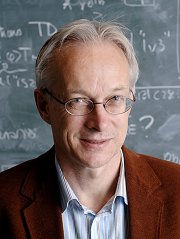In this episode, we talk to Johan van Benthem, University Professor of pure and applied logic at the University of Amsterdam and Henry Waldgrave Stuart Professor of philosophy at Stanford University. Click here to listen to our conversation with him.

Logic is traditionally assumed to have deductive reasoning as its subject matter. A valid deductive argument is one in which it’s impossible for the premises to be true and the conclusion false. For instance, if it’s true that I’m a German composer, then it absolutely must be the case that I am a composer. I couldn’t not be one! The conclusion of the argument is just inevitable. Over the past century, philosophical and mathematical logicians have developed a wide array of formal techniques to study arguments of this sort.
In our discussion, Johan van Benthem argues that logicians can use the very same techniques to investigate other things as well. Logicians don’t have to confine their attention to this specific kind of introspective reasoning performed by individuals. They can also investigate how we share information with one another, and uncover the rules that govern how we use information about what other people know and believe. Van Benthem and his colleagues have been especially active in trying to uncover the rules we follow when revising our beliefs in the light of imperfect information.
As he points out, this change in orientation has deep philosophical consequences. One is that when you begin to look at the theory of knowledge in this way, the problems confronted by philosophers in the field start to look quite different. Questions like ‘How can we get things right all the time and never make mistakes?’ eventually find themselves replaced by questions like ‘How can we fix our mistakes, once we realize we’ve made them?’
Join us as van Benthem walks us through the many twists and turns of this new research program!
Matt Teichman